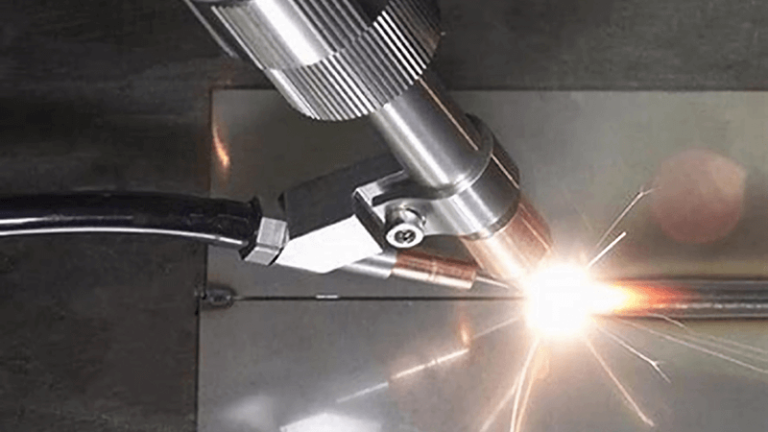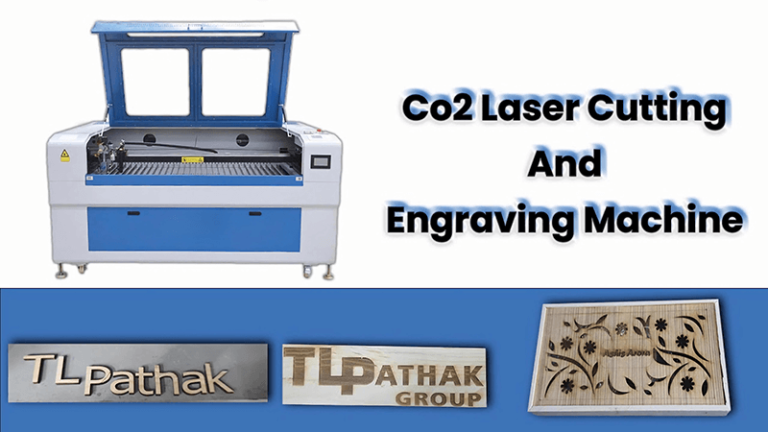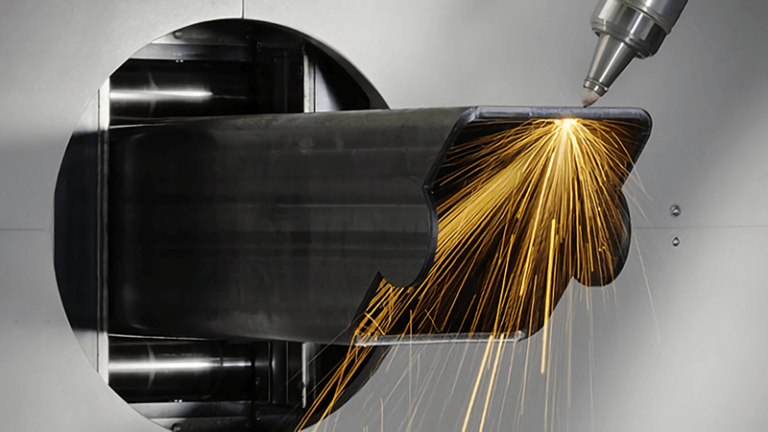If you're worried about welding safety, you're not alone. Many industrial buyers and engineers struggle to find a welding system that ensures both operator protection and production efficiency.
Laser welding machines are among the safest options available today—when used with the right safety protocols. Their precision, low-heat input, and enclosure-based designs make them a smart choice for industries that prioritize clean, safe, and efficient welds.
Choosing the right welding machine isn’t just about performance or cost—it’s about protecting your team and your components. That’s why more engineers and procurement managers are exploring the safety advantages of laser welding. Let’s break it down.
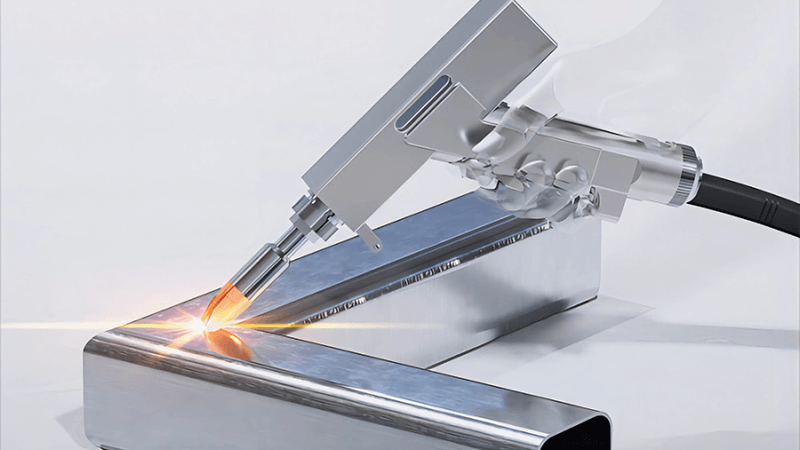
Which is safer, MIG or TIG welding?
Many buyers think safety is only about PPE. But the type of welding process you choose also plays a huge role in operator risk, equipment damage, and product quality.
TIG welding generally offers more control than MIG, but both involve significant risks due to high heat, sparks, and UV radiation. Laser welding, in contrast, isolates the hazard using enclosures and precision targeting.
Comparing MIG, TIG, and Laser Welding Safety
| Welding Type | Operator Exposure | Heat Input | Fire Risk | Suitable for Automation | Safety Controls |
|---|---|---|---|---|---|
| MIG | High | Moderate | Moderate | Limited | Manual only |
| TIG | Moderate | High | High | Some automation possible | Manual only |
| Laser | Low (if enclosed) | Low | Low | Highly compatible | Enclosure + Sensors |
Why Laser Welding Wins on Safety
Laser welding1 systems, especially the ones we build at Kirin Laser, are enclosed and automated. This means operators are shielded from direct exposure. The process uses less heat, so there's minimal spatter and lower fire risk. In high-stakes industries like aerospace and electronics, this kind of safety profile2 isn't just nice to have—it's mandatory.
I've helped multiple clients shift from TIG or MIG setups to fully enclosed laser welding units. One aerospace supplier saw a 60% drop in operator-related incidents3 and a 25% improvement in part consistency after switching to laser.
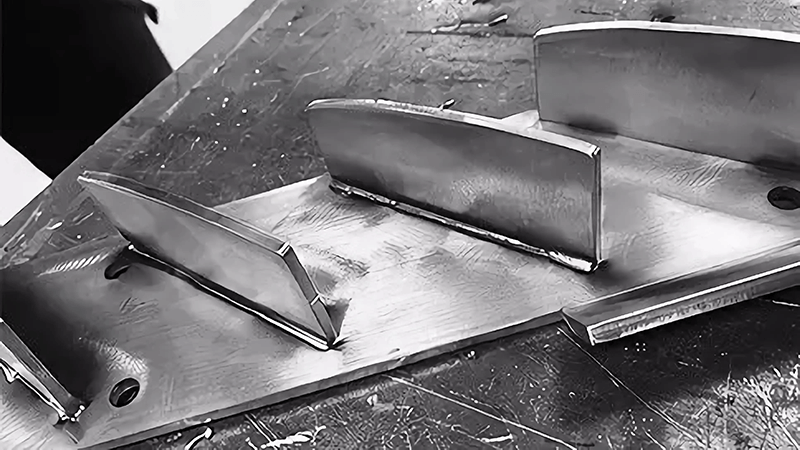
Is MIG welding the safest?
MIG welding is simple to learn and fast to deploy. But does that make it safe? Not necessarily. Let’s look deeper.
MIG welding exposes operators to sparks, fumes, and radiation. Unlike laser systems, MIG setups lack automated shielding, making them less safe—especially in high-precision, repetitive workflows.
Why MIG Falls Short for Safety-Conscious Buyers
1. Open Arc = Open Hazards
MIG welding requires constant supervision, and the arc remains exposed during the entire process. Even with proper PPE, there's always a risk of burns, flash, or inhalation of harmful gases4.
2. Inconsistent Output, Increased Rework
MIG welds can vary based on operator skill and setup quality. This leads to rework, which means more exposure time and more safety risks.
3. Difficult to Enclose or Automate
Unlike laser welding5, MIG systems are hard to integrate into enclosed cells. That leaves less room to implement interlocks or emergency shutdown systems.
MIG welding6 has its place—especially for thick materials or structural work—but for industries that require both precision and safety, it’s no match for laser.
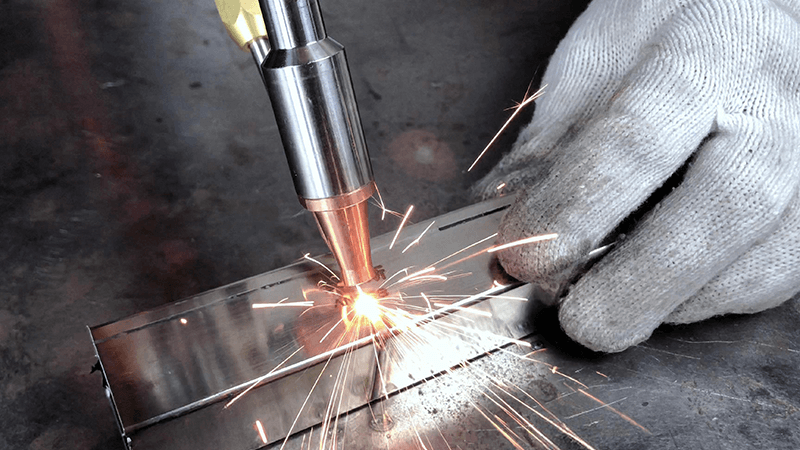
Which type of welding machine is the best?
This is the million-dollar question every procurement manager must answer. "Best" depends on your use case—but safety, precision, and total cost of ownership matter in all industries.
Laser welding machines stand out as the best all-around option for modern manufacturers who care about quality, speed, and operator safety.
How to Define “Best” in Welding Machines
1. Precision and Consistency
Laser welding systems from Kirin Laser7 offer micron-level precision, ideal for automotive, medical, and aerospace components. They reduce rework and scrap.
2. Clean Operation = Lower Risk
No sparks, no fumes, minimal heat. That translates into fewer safety incidents, less need for ventilation systems, and a cleaner workspace.
3. Automation-Ready
Most of our customers integrate laser welding systems into robotic or conveyor-based lines. This reduces the need for direct human interaction, improving throughput and safety.
4. Long-Term Cost Benefits
Yes, initial investment is higher. But laser welding machines8 have fewer consumables, less downtime, and longer-lasting parts. Over time, that adds up to serious savings.
Here at Kirin Laser, we often help buyers analyze their total cost of ownership (TCO)9 across multiple machine types. In most cases, laser welding provides better ROI within 18–24 months—especially when you factor in fewer accidents and compliance costs.
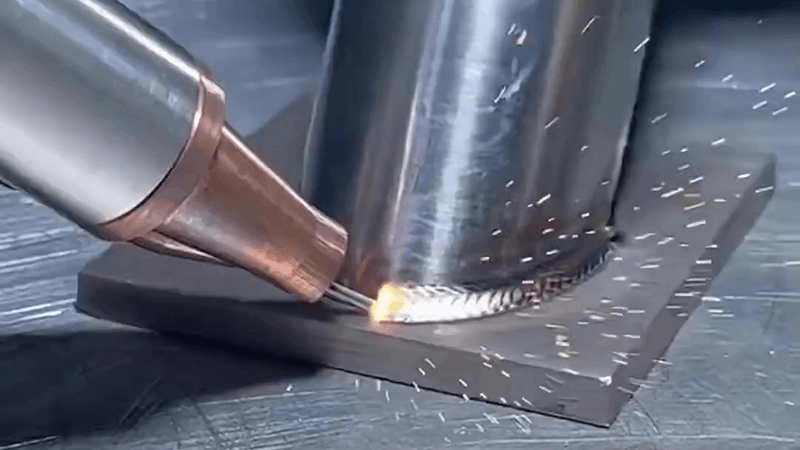
What is the cleanest type of welding?
Clean welding is about more than appearance. It’s about minimal contamination, low environmental impact, and easy post-weld processing.
Laser welding is the cleanest method available. It produces smooth, narrow welds with little to no spatter, fumes, or post-weld cleanup.
The Hidden Benefits of Clean Welding
1. Better Weld Aesthetics10
Laser welds are narrow and smooth. There’s no need for grinding or polishing in many cases, which saves labor and avoids dust exposure.
2. Lower Emissions and Waste11
MIG and TIG processes generate visible smoke, sparks, and slag. Laser welding? Nearly none. This is critical in regulated environments and green-focused factories.
3. Reduced Risk of Inclusion or Contamination12
Because laser welding is contactless and high-speed, there’s less opportunity for foreign material to contaminate the weld. This improves reliability in critical parts.
I remember one case where a customer in the medical equipment sector was struggling with cosmetic defects from TIG welding. Once we transitioned them to a laser solution, their pass rate jumped to 98.6%, and their final-stage polishing process was cut in half.

Conclusion
Welding safety isn’t just about goggles and gloves—it starts with choosing the right machine. While MIG and TIG have their place, laser welding machines offer a level of precision, cleanliness, and operator protection that’s hard to beat. At Kirin Laser, we believe that safer welding leads to better business. Our laser systems help global partners minimize risk, increase output, and stay ahead of industry standards. Whether you’re building satellites or surgical tools, laser welding13 is the smarter, safer way forward.
-
Explore the advantages of laser welding, especially in terms of safety and efficiency, which are crucial for high-stakes industries. ↩
-
Discover the importance of a strong safety profile in laser welding, especially for industries like aerospace and electronics. ↩
-
Learn how laser welding technology can significantly lower operator-related incidents, enhancing workplace safety. ↩
-
Learning about the harmful gases produced during MIG welding is crucial for ensuring proper safety measures and PPE usage. ↩
-
Exploring the safety advantages of laser welding can provide insights into better welding practices and technology. ↩
-
Understanding the safety concerns of MIG welding can help buyers make informed decisions about their welding processes. ↩
-
Explore how Kirin Laser's advanced technology can enhance precision and efficiency in your welding projects. ↩
-
Discover the unique benefits of laser welding machines and how they can improve your production processes. ↩
-
Understanding TCO can help you make informed decisions about your welding equipment investments. ↩
-
Discover how improved weld aesthetics can lead to cost savings and enhanced product quality in manufacturing processes. ↩
-
Exploring this resource will provide insights into how reducing emissions can enhance sustainability in welding, crucial for eco-friendly practices. ↩
-
This link will help you understand the advantages of laser welding in maintaining weld integrity, especially in critical applications. ↩
-
Find the best laser welding machine and laser welding solution from Kirin Laser, clicking this link to get your best laser machine for your business. ↩


